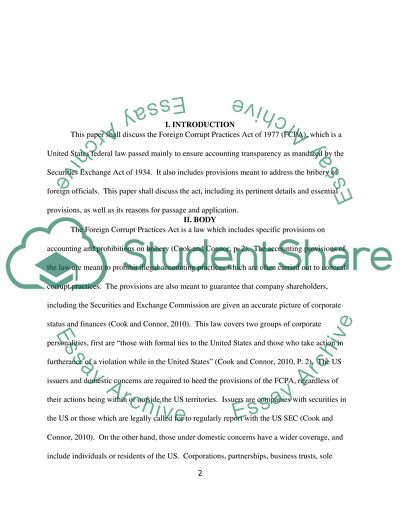Cite this document
(“The Foreign Corrupt Practices Act Research Paper”, n.d.)
The Foreign Corrupt Practices Act Research Paper. Retrieved from https://studentshare.org/finance-accounting/1437316-the-foreign-corrupt-practices-act-what-why
The Foreign Corrupt Practices Act Research Paper. Retrieved from https://studentshare.org/finance-accounting/1437316-the-foreign-corrupt-practices-act-what-why
(The Foreign Corrupt Practices Act Research Paper)
The Foreign Corrupt Practices Act Research Paper. https://studentshare.org/finance-accounting/1437316-the-foreign-corrupt-practices-act-what-why.
The Foreign Corrupt Practices Act Research Paper. https://studentshare.org/finance-accounting/1437316-the-foreign-corrupt-practices-act-what-why.
“The Foreign Corrupt Practices Act Research Paper”, n.d. https://studentshare.org/finance-accounting/1437316-the-foreign-corrupt-practices-act-what-why.


